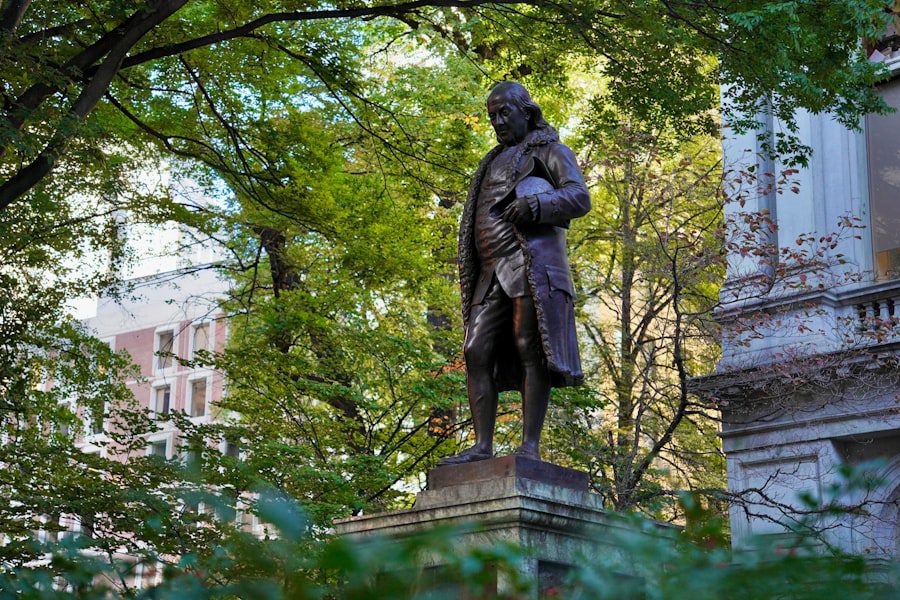History serves as the foundation upon which societies build their identities. It is a tapestry woven from the threads of countless events, decisions, and experiences that have shaped the present. Understanding our history involves delving into the past to uncover the narratives that define us.
This exploration is not merely an academic exercise; it is a vital process that informs our values, beliefs, and actions today. By studying historical events, we gain insight into the struggles and triumphs of those who came before us, allowing us to appreciate the complexities of our current circumstances. For instance, examining the civil rights movement in the United States reveals not only the fight for equality but also the resilience and determination of individuals who faced immense adversity.
Figures like Martin Luther King Jr. and Rosa Parks became symbols of hope and change, inspiring generations to advocate for justice. Their stories remind us that history is not just a series of dates and events; it is a living narrative that continues to influence our societal dynamics.
Understanding our history equips us with the knowledge to navigate contemporary challenges, fostering a sense of responsibility to honor those who paved the way for progress.
Key Takeaways
- Our history shapes our cultural identity and provides valuable lessons for the future.
- Recognizing and celebrating our heritage helps us connect with our roots and understand our place in the world.
- Preserving our traditions ensures that future generations can continue to benefit from our rich cultural legacy.
- Learning from the wisdom of our ancestors can guide us in making informed decisions and building a better future.
- Embracing our cultural identity fosters a sense of belonging and pride in our community.
Recognizing Our Heritage
Heritage encompasses the traditions, languages, customs, and artifacts passed down through generations. It is a rich tapestry that reflects the unique experiences of a community or nation. Recognizing our heritage involves acknowledging these elements and understanding their significance in shaping our collective identity.
This recognition fosters a sense of belonging and pride, as individuals connect with their roots and appreciate the contributions of their ancestors. Take, for example, the celebration of cultural festivals around the world. Events such as Diwali in India or Día de los Muertos in Mexico serve as vibrant expressions of heritage, bringing communities together to honor their past while celebrating their present.
These festivals are not merely occasions for revelry; they are opportunities for education and reflection, allowing younger generations to learn about their cultural narratives. By recognizing our heritage, we create a bridge between the past and present, ensuring that the values and lessons of our ancestors continue to resonate in our lives.
Preserving Our Traditions

Traditions are the living expressions of our heritage, encompassing rituals, practices, and customs that have been passed down through time. Preserving these traditions is essential for maintaining cultural continuity and fostering a sense of identity within communities. This preservation can take many forms, from oral storytelling to the practice of traditional crafts, each contributing to a rich cultural landscape.
In many Indigenous cultures, for instance, storytelling plays a crucial role in preserving history and imparting wisdom. Elders share tales that encapsulate moral lessons, historical events, and cultural values, ensuring that younger generations remain connected to their roots. Similarly, traditional crafts such as weaving or pottery not only serve as artistic expressions but also as means of sustaining cultural practices.
By actively engaging in these traditions, communities reinforce their identity and create a sense of belonging that transcends time.
Learning from Our Ancestors
The wisdom of our ancestors is a treasure trove of knowledge that can guide us in navigating contemporary challenges. Learning from their experiences involves reflecting on their successes and failures, understanding the context in which they lived, and applying those lessons to our own lives. This process requires humility and an openness to embrace the complexities of history.
For example, the agricultural practices of ancient civilizations offer valuable insights into sustainable living. The methods employed by Indigenous peoples often emphasize harmony with nature, showcasing how they cultivated crops without depleting resources. By studying these practices, modern societies can adopt more sustainable approaches to agriculture, addressing pressing issues such as climate change and food security.
Learning from our ancestors is not about romanticizing the past; it is about recognizing the relevance of their experiences in shaping a more sustainable future.
Embracing Our Cultural Identity
Cultural identity is a multifaceted concept that encompasses language, beliefs, values, and practices unique to a particular group. Embracing this identity involves celebrating diversity while fostering inclusivity within communities. It is essential to recognize that cultural identity is not static; it evolves over time as societies interact and adapt to new influences.
In multicultural societies, embracing cultural identity can lead to vibrant exchanges that enrich communities. For instance, cities like Toronto or London are melting pots where various cultures coexist, each contributing to the social fabric. Festivals celebrating different heritages create opportunities for dialogue and understanding among diverse groups.
By embracing our cultural identities, we cultivate an environment where differences are celebrated rather than feared, fostering unity in diversity.
Building a Vision for the Future

A vision for the future is rooted in an understanding of our past and an appreciation for our heritage. It requires us to reflect on what we value as a community and how we wish to shape our collective destiny. Building this vision involves collaboration among individuals from various backgrounds, ensuring that diverse perspectives are considered in decision-making processes.
For instance, community planning initiatives often benefit from inclusive dialogues that engage residents in envisioning their neighborhoods’ future. By incorporating input from various stakeholders—such as local businesses, schools, and cultural organizations—communities can create comprehensive plans that reflect their unique identities while addressing contemporary challenges. This collaborative approach fosters a sense of ownership among residents, empowering them to actively participate in shaping their environment.
Investing in Our Community
Investing in our community is essential for fostering growth and resilience. This investment can take many forms: supporting local businesses, funding educational programs, or enhancing public spaces. By prioritizing community development, we create an environment where individuals can thrive while reinforcing social bonds.
Local businesses play a crucial role in economic sustainability. When residents choose to shop locally or support neighborhood enterprises, they contribute to job creation and economic vitality. Additionally, investing in educational programs ensures that individuals have access to resources that empower them to pursue their aspirations.
For example, mentorship initiatives connecting experienced professionals with youth can provide invaluable guidance and support as they navigate their career paths. By investing in our community’s well-being, we lay the groundwork for a brighter future.
Empowering the Next Generation
Empowering the next generation is perhaps one of the most significant responsibilities we hold as stewards of our culture and history. This empowerment involves providing young people with the tools they need to succeed while instilling in them a sense of pride in their heritage. Education plays a pivotal role in this process; it shapes young minds and equips them with critical thinking skills necessary for navigating an increasingly complex world.
Programs that promote cultural education are vital for fostering this empowerment. Initiatives that teach young people about their history, traditions, and values help cultivate a strong sense of identity. For instance, schools that incorporate multicultural curricula expose students to diverse perspectives, encouraging empathy and understanding among peers from different backgrounds.
Additionally, mentorship programs can connect youth with role models who inspire them to pursue their passions while remaining grounded in their cultural roots. By empowering the next generation, we ensure that they carry forward the legacies of our ancestors while forging their paths toward a brighter future.


